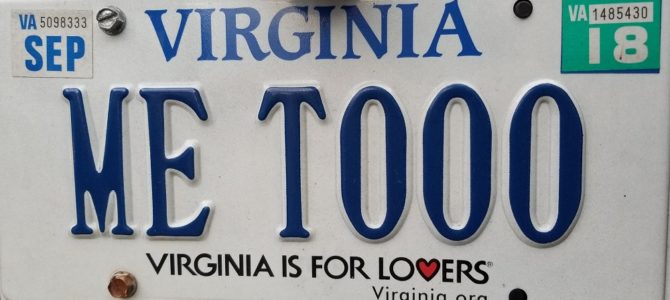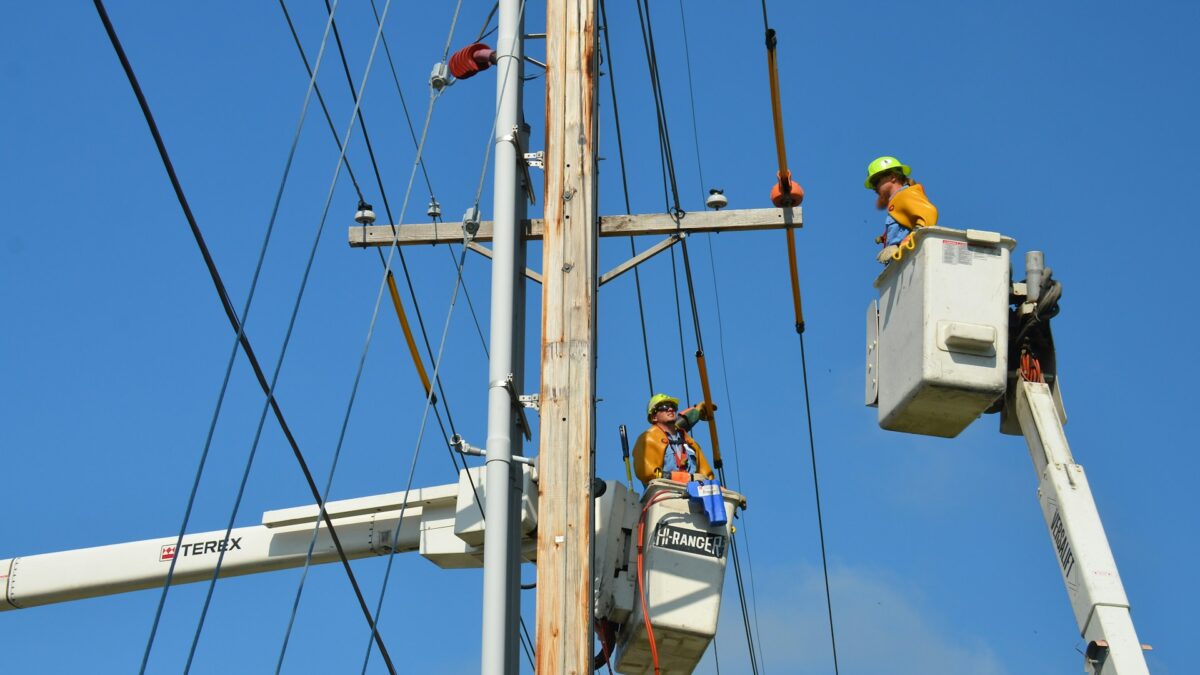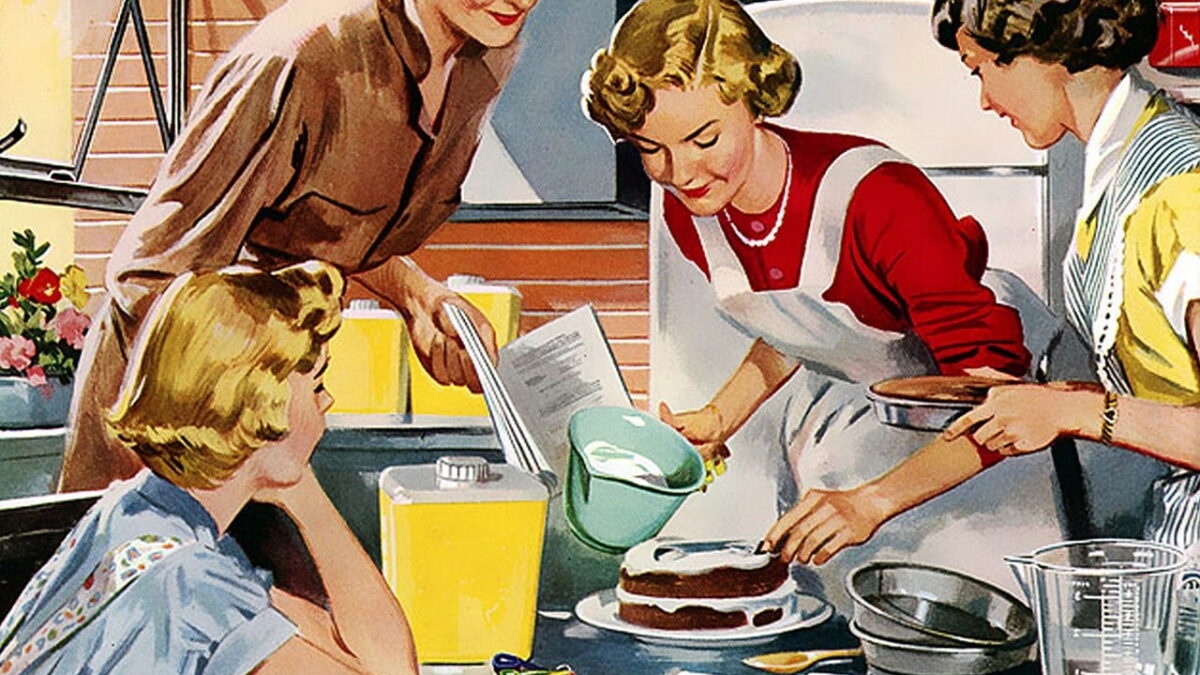
Me Too started with a hashtag, then morphed into a trend of public humiliation, trial by media, and personal boycotts that altered the standards by which a person is judged. Initially the movement was used to take down chronic abusers of women who had been using their power and influence to silence complaints.
As the movement picked up steam, private sexual encounters became fair game. Many of the Me Too infractions that came to light aren’t criminal offenses, and much of the shaming has been against non-public figures. Those accused who are known in their field but not tabloid superstars experience being “Me Too’d” differently than the big names who started it all.
Alec Holowka didn’t commit any crime, and will face no trial. His is not a household name. A game developer who was in a relationship with another game developer, Zoe Quinn, Holowka lost his job after Quinn went public with a story of their relationship that painted him as an abuser. Quinn’s allegations were later shown to be suspect, at the very least, and patently false at the worst. Holowka took his life because of it.
Allegations against Hollywood producer Harvey Weinstein are what really got the Me Too ball rolling. The story broke in October 2017. He is the biggest, most egregious example, the granddaddy of the whole movement. He has powerful attorneys on his side, and because the accusations against him rose to the level of criminal investigation, he is able to offer a legal defense. Because of his high position in society, he can also offer a media defense.
Without media outlets at your command, however, there’s no way to give a defense in the court of public opinion. A public defense on social media makes you look like a jerk, and therefore guilty. An admission of guilt often does not result in redemption but further ostracization.
‘I Had Never Even Thought About [These People] Sexually’
Coined by Tarana Burke in 2006 and boosted by actress and activist Alyssa Milano in 2017, the phrase Me Too has been a way for women to air their grievances against men who have wronged them. Louis C.K., Matt Lauer, Aziz Ansari, Mario Batalli, Johnny Depp, and Al Franken were all tried before the public eye and summarily dismissed as the worst guys ever.
Men with established careers are thought by the “Believe All Women” crowd to have gotten what they deserved. Some of these guys will make a comeback, and are already on the road to recovery. For writers who don’t have fame, a comeback is less likely.
Weinstein’s defense attorney Donna Rotunno was asked on “CBS This Morning” if she thought her defense of Weinstein was making it harder for women “who have been sexually harassed, assaulted, raped, to come forward?”
Rotunno replied that she hopes she’s “making it easier for them… I would hope that doing what I’m doing makes them realize they have choices and if they really are in a position that they feel uncomfortable then the first thing they should do is report it, they should go to the police. And I think that sort of weeding out the cases that don’t rise to the level of real assaults should help real victims.”
What about instances where there are no victims? “The Adderall Diaries” author Stephen Elliott brought a lawsuit against the progenitor of the Shitty Men in Media List, a sort of blacklist secretly passed around based on anonymous allegations of untoward behavior.
“I was anonymously accused of rape,” Elliott told me, “and no one has ever come forward with anything resembling a rape charge.” In fact, he was surprised to see who had publicly come forward: “I thought the accusations would come from people I’d had intimate, erotic experiences with, or at least feelings for… These particular people were not people I had ever even thought about sexually; it was really left field.”
Regardless, it was an accusation that destroyed his career and his standing in the literary community. He filed a lawsuit, which got him hit with more hate, because he was accused of further victimization. “The person I’m suing, who created the shitty media men list, got a book deal out of it and speaking gigs. I lost my agent and my editor and was unpublished from certain literary journals. My house was vandalized and someone spray painted ‘rapist’ on my car,” Elliott says.
I asked him what the most lasting effect has been so far. “I had no idea, honestly, how painful the whole thing would be,” he said. “Honestly, I still think about it every day. Not because of the lawsuit, but because of the friends I lost. I learned so much about humanity and how people work, and I don’t want those friends back, obviously—they have no integrity and they’re not actually good people. But I didn’t really want to learn those lessons about people. I didn’t want to know how quickly friends will bail on you to stay with the tribe.”
‘I Still Suffer Panic Attacks’
Joseph Massey is a poet who was accused of sexual misconduct via a blog post shared to Facebook. “I attempted to post an apology on Facebook, explaining that I had made mistakes in the past,” he told me. “The post was immediately pounced on by people who refused to accept my apology. The very first comment on the post said: ‘All you do is lie. Lie, lie, lie, just like Donald Trump.”
Massey refuses to be cancelled. He continues to write and publish. For him, the only way out is through. But it comes at a price. “I still suffer panic attacks related to what happened; but they continue to lessen in their intensity with the help of my doctor and therapist,” he said. “It’s difficult to accept the loss of people who I thought were my friends, who turned on me without asking me any questions—the ghosting. It is debilitating to feel like a pariah, and to have my life’s work—my poetry—thrown down a memory hole.”
Expatriate foreign correspondent Jon Kaiman “was accused by two women, each once his friend, of behaving badly during separate casual sexual encounters, four years apart.” His story was told by Emily Yoffe for Reason.
Online show creator and YouTube personality Andy Signore had an affair with a woman who then accused him of forcing himself on her. He was under a gag order for almost two years, lost his job, and was isolated from his peers, not to mention the fallout in his marriage (which he admits is obviously of his own making). Once he was able to speak, text messages and email threads reveal that the relationship was consensual. Signore is working on starting over.
There are men who won’t talk publicly about this, who even a year or so on are still too deeply entrenched in the fallout. I heard from a man who said the worst part of his whole Me Too situation was the harassment of his current partner.
He won’t apologize for what the mob says he did wrong. He keeps doing his work, despite it being much more difficult to make inroads in his industry. A writer who watched his career fall apart has quit writing altogether, and doesn’t think he’ll ever go back to it. He’s mostly glad to not feel suicidal anymore.
Suicide Is Not Collateral Damage to Dismiss
There are people who couldn’t take it and killed themselves. Figure skater John Couglin was accused of sexual misconduct by three women, two who were minors, and took his own life after calling the accusations “unfounded.” So, too, Swedish actor and director Benny Fredriksson, who was accused of insisting that an actress get an abortion if she wanted a particular role. He claimed that he’d said he was sorry she couldn’t take a role because of her pregnancy. The fallout of the accusation led him to kill himself.
Allegations fly fast and furious within small communities. The men in question believe they are supporters of women. They are leftist, liberal, anti-Trump, pro-female. Coming to find that women they knew, or were romantically involved with, believe that they did this horrible thing is agonizing in itself. Having those grievances aired publicly often comes as a shock.
Much like Weinstein’s now iconic white bathrobe is a fixture in each of the stories that surfaced against him, the public airing is an essential element of any Me Too story. The experience of being cancelled and having your community turn on you is overwhelming. The intent behind Me Too, that women should not feel silenced and powerless after sexual harassment, assault, or worse by powerful men has its place in culture.
But these new standards are continuously morphing. Male misbehavior against women now can be whatever the women feel it is, and since some of these allegations are five or ten years old, men didn’t know the new rules going in.
It Takes a Few Broken Eggs to Make an Movement
Those who still support Me Too and its methods balk at the idea that there’s anything wrong with men losing their lives and livelihoods due to these accusations, or insist it doesn’t happen. Author Jim C. Hines thinks that because false accusations of rape are 5.9 percent of those reported, it’s more important to uphold victims than to make sure the accused are given a fair hearing.
He references the case of Jon Cheshire, a teenager accused of rape who hanged himself. His mother followed in her son’s suicidal steps, dying by hanging a year later. The classmate who accused Cheshire later withdrew her complaint.
“Tragic as that is,” Hines tweeted, “it doesn’t prove ‘a lot of people’ have their lives ruined. It doesn’t counter the statistics showing the opposite. I’m tired of this derailment tactic. I’m tired of the false equivalence. No, not even false equivalence, because so many of these people are so much *more* worried about being ‘falsely’ accused of rape.” Hines doesn’t think Cheshire’s death is enough evidence that false accusations ruin lives.
Nicole Bedera, Ph.D sociology student who is writing her dissertation on the topic, “set out to gather evidence of whether or not men accused of rape really had their ‘lives ruined,’” she wrote on Twitter. “I never found any evidence of a ruined life. But I heard alot of stories from survivors about overwhelming trauma, including a lot of suicide attempts. Stop perpetuating the myth that rape allegations ‘ruin lives.’ They don’t. But spreading that myth around has real implications for survivors who will be traumatized over and over again by the people who believe that a perpetrator’s ‘ruined life’ is all there is at stake.”
Instead, she believes that the men who claim to have been falsely accused use their Me Too stories as a way to pick up chicks. Bedera wrote of her subject, whom she calls Justin: “It went like this: (1) bring up the allegation as proof of how ‘honest’ and ‘vulnerable’ you are; (2) show a misleading set of texts as evidence that the allegation was false; (3) tell the new date that you totally understand if she is uncomfortable; (4) set second date.”
Perhaps she would be happier if her subject hid his Me Too situation to potential romantic partners, or was intentionally dishonest, or lived like a eunuch and did not pursue amorous engagements at all?
This method of take-down has been applied to men who are just not that powerful, men who have standing in their community, sure, but are easy to get around, to defame, and to destroy. These are men who don’t have the kind of power and influence of Weinstein or any of these other brand-name guys, but the same methods were applied to destroy them. What should have happened in these cases was a conversation, not a complete character defamation.
It is harming to both men and women to destroy the standards of conduct between the sexes and replace it with a collection of feelings that change months, years, or even a decade later. Both end up on edge, second guessing their interactions. The men who are caught in this snare have a right to know what the rules are before they break them. Punishment by social mobbing is never an acceptable form of justice.









